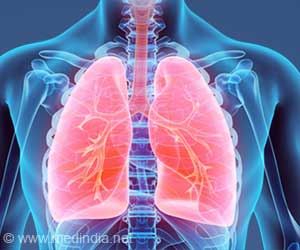New research suggests that gut bacteria may provide enough folate, prompting a rethink on folate needs as we age.
- Folate is essential for red blood cell production, but gut bacteria may contribute significantly to folate levels
- Older adults may not need as much dietary folate, but further human research is needed
- Rapid metabolism shifts, vital for energy management, can be hindered in older age, influencing overall health
In the current investigation, a group of middle-aged mice (52 weeks old) were given either a conventional or a folate-deficient diet. The researchers observed no evidence of anemia in their folate-deficient group, indicating that they still had enough red blood cells. They also found no impaired viability or body weight. Males in this group weighed more than those on a regular diet. The study did not investigate the effects of late-life folate deficiency on longevity since all mice were slaughtered at 120 weeks. However, males on both diets and females appeared to have comparable life expectancies.
The work was published in Life Science Alliance (1✔ ✔Trusted Source
Late-life dietary folate restriction reduces biosynthesis without compromising healthspan in mice
Go to source).
Your gut bacteria might be producing enough folate to keep your red blood cells in check- even without dietary sources! #folate #aging #healthresearch #medindia’
Switching Metabolism Between Two Modes
The study's principal author, Michael Polymenis, Pharm.D., Ph.D., who teaches biochemistry and biophysics at Texas A&M, said, "As we become older, we can't move fast from one mode of metabolism (e.g., burning fat while we sleep) to another. "Quick transitions are required to meet our body's on-demand needs."Michelle Routhenstein, M.S., R.D., CDCES, a preventive cardiology dietician who was not involved in the study, stated, "During the day, when active, the body primarily uses carbs for energy, with greater insulin levels increasing glucose uptake. Insulin sensitivity diminishes at night, changing metabolism to use stored fat as the body's energy needs fall and growth hormone levels rise.
"As we age," explained Polymenis, "our bodies become less adept at adjusting their fuel source in response to changing needs, which can affect overall health and energy levels."
Why is Folate Crucial for Health?
Routhenstein stated that folates are "essential for various bodily functions, including DNA synthesis, cell repair, and red blood cell production. They are particularly important during rapid growth phases such as pregnancy and infancy, and support cell function and division in adults while helping to prevent anemia. Folates are also essential for cardiovascular health, particularly as we age. Folates lower homocysteine levels, which are a risk factor for heart disease, help with vascular cell repair, and may have anti-inflammatory properties."Foods that are rich in folates include:
- Asparagus
- Brussels sprouts
- Avocados
- Leafy greens
- Spinach
- Chickpeas
- Lettuce
- Liver (not recommended during pregnancy)
- Peas
Gut Bacteria: The Hidden Source of Folate that Supports Red Blood Cell Production
The finding raises an important question: how did the folate-deficient mice maintain enough red blood cells to avoid anemia? "That's an excellent question," Polymenis replied. "It is critical to recall that, despite not receiving folate in their diet, these mice had enough folate to maintain red blood cell activity. Their folate levels were 30-40% higher than those of control mice given folate in their diet."The question remains: what is the origin of those red blood cells?
"It's almost certainly from the bacteria in their gut," Polymenis explained. "So, diet is not our only source of folate."
Caution Urged in Applying Folate Research Findings to Human Health
It is well documented that folates are essential for nutritional health, particularly in young people. It is also worth mentioning that Polymenis' team has previously worked with yeast, worms, and mice but has not tested their idea in humans. This is why he recommends caution."We advocate for no changes in individuals. While we believe our study is intriguing and warrants further investigation, it is rather modest in mice. "At this point, it emphasizes the need for more research before advocating changes for older adults," Polymenis stated.
At the moment, Routhenstein stated, "Folate remains important for overall health, including cardiovascular well-being, so it's crucial to maintain a diet rich in folate-rich foods. Consulting with a registered dietitian nutritionist is recommended to stay informed about new nutrition research and continue following established nutritional guidelines."
Polymenis provided a potential method of adopting folate decrease for elderly individuals if his study's findings were confirmed in humans. Some foods now have nutritive additions, such as vitamin D-fortified milk and folic acid added to cereals and breads. He envisioned a time when a folate-reducing additive could be used to readily reduce folate intake in middle-aged and elderly people who do not require it.
Reference:
- Late-life dietary folate restriction reduces biosynthesis without compromising healthspan in mice - (https://pubmed.ncbi.nlm.nih.gov/39043420/)
Source-Medindia












